|
As the highest court in the land, the United States Supreme Court plays a critical role in our constitutional form of government. It is independent of, but co-equal to Congress and the Executive Branch of our federal government. Without a deep commitment to the rule of law, and a belief that justice is truly equal under law, our system of government would collapse. The Supreme Court is the court of last resort for those seeking justice, and it protects the rights of citizens by striking down any law that violates the Constitution. Therefore, the Supreme Court must be seen as independent of outside influences, and it must adhere to the highest levels of transparency and ethical standards in rendering its decisions. Revelations in recent weeks of unreported gifts to Justice Clarence Thomas have raised questions by the American people and members of Congress about the integrity of the Supreme Court. ?In extensive reporting last month by ProPublica, it has come to light that Supreme Court Justice Clarence Thomas has for many years been the beneficiary of unreported gifts from Harlan Crow, a Texas billionaire with close ties to the Republican Party. These gifts included lavish international travel, real estate deals, and tuition payments made on behalf of Thomas’ grandnephew. Harlan Crow also funded a political group founded by Thomas’ wife which paid her a $120,000 salary. None of this has been disputed by Crow or Justice Thomas. On several occasions during his tenure at the Court, Clarence Thomas complained about the low pay for Supreme Court Justices, further fueling calls for Congressional investigations into his actions. Do these revelations about Justice Thomas represent possible conflicts of interest or unethical behavior? Possibly. But they don’t represent violations of any laws or codes of conduct applicable to the Supreme Court, and therein lies the problem. Calls for Change: On April 20th two senators introduced a bipartisan bill designed to force the Supreme Court to establish a code of ethics. Earlier this month the Democrat controlled Senate Judiciary Committee held hearings highlighting possible ethical lapses by Justice Clarence Thomas, and the need to adopt more transparency and clearly defined ethical standards. Chief Justice John G. Roberts Jr. declined an invitation to appear before the committee, citing issues related to the separation of powers and the importance of preserving judicial independence. It is no surprise that Republicans called the hearings a partisan attack on a conservative member of the Court, and promised to thwart any legislation that the Democrats put forth to constrain the Court in any way. Even though the hearings won’t produce any Congressional action, several Republican Senators, including Lindsey Graham of South Carolina, urged the Supreme Court to take actions to improve transparency and instill more public confidence. The Congressional hearings and public calls for the Supreme Court to be more transparent have not gone unnoticed by Chief Justice Roberts. In a rare written statement defending the Court, Roberts sent a letter to the chairman of the Senate Judiciary Committee which included a Statement on Ethics Principles and Practices signed by all nine Supreme Court Justices. The statement lists the statues and guidelines which the Court uses to address specific ethical issues. I applaud the Court for providing some of its principles and practices. But these are all voluntary guidelines and the Court is not compelled to follow them. The statement doesn’t address the apparent ethical issues surrounding gifts received by Justice Thomas. It is still unclear whether or not Chief Justice Roberts deems these gifts to be inappropriate, and if so, what corrective actions will be taken. What Can be Done? In 1973 The Code of Conduct for United States Judges was adopted by the Judicial Conference to promote public confidence in the integrity, independence, and impartiality of the federal judiciary. The Code governs the behavior of most federal judges, but it does not apply to the Justices of the Supreme Court. In fact, the Supreme Court is not bound by any formal code of conduct. There have been several attempts by Congress to impose a code of conduct on the Supreme Court, but most have run into legal problems. Separation of powers between the three branches of government prevents the Congress from mandating how the Court conducts its internal affairs. Even if the Congress was to pass legislation that directed the Court to adopt reforms, the Court could deem the legislation unconstitutional. What Should be Done? Even if Constitutional issues could be overcome, Congress is too polarized to pass any meaningful legislation that would impact the Supreme Court. The Supreme Court clearly has a credibility issue with the American people. It is not up to Congress to remedy this situation. It is the responsibility of Chief Justice Roberts, and his legacy depends on it. Here are two suggestions:
For the credibility of the Supreme Court, this should be done quickly and communicated to the American people. The Supreme Court is the only branch of the federal government that is unelected and unaccountable to the American people. Therefore, it must be above reproach and its actions and deliberations should be transparent. Unreported gifts to Justice Clarence Thomas have brought into question the integrity of the Court in recent weeks. The fallout from these revelations is of the Court’s own making, and only the Court can remedy the situation. Chief Justice Roberts must take clear and decisive action to preserve the integrity of the Court, otherwise our system of government could be in peril. Update November 13, 2023: The Supreme Court announced today that it had issued an ethics code for its justices. All nine justices signed on to the new rules.
It has been a long time coming, and is evidence that the Court is listening to the American people and the Congress. The code is not perfect, but it is certainly a step in the right direction. The main complaint against the new code is that it has no enforcement mechanism and is therefore toothless. It is doubtful that if the code had previously been in place, it would have curbed the behavior of Justice Thomas (outlined in the blog). Here is a link to the new code of ethics: https://www.supremecourt.gov/about/Code-of-Conduct-for-Justices_November_13_2023.pdf If you enjoy reading this type of commentary please subscribe to my blog and tell a friend. You will receive an email notification when new blogs are posted. The email will come from the site’s email: armchairamerican1776 @gmail.com. Thanks, Armchair American
0 Comments
Later this month President Biden will sign into law the Respect for Marriage Act. Even though this law won’t be perfect, it does provide some very important protections for same-sex and interracial couples, and should be considered a holiday gift to the American people in the waning days of the 117th Congress. What is the Respect for Marriage Act? The bill was approved by the House of Representatives in July and then moved to the Senate for consideration. After the inclusion of an amendment which provides certain protections to nonprofit religious organizations, the bill was passed by the Senate on November 22, 2022. All Democrats and 12 Republicans voted for the bill, getting it past the 60 votes needed for passage. Since the House version of the bill was amended in the Senate, it will return to the House for a final vote. This should happen within the next two weeks before going to the President for his signature. For the purposes of federal law, the bill redefines the definition of marriage, and requires all states to recognize any marriage that was legal in the state where it was entered into. The bill also prohibits polygamous marriages, and protects religious organizations who refuse to perform marriage ceremonies that are counter to their beliefs. Revised Definition of Marriage: The bill repeals the Defense of Marriage Act, which defined marriage as “a legal union between one man and one woman as husband and wife”. Under the new bill, the federal government will recognize any marriage between two individuals which is valid in the state where the marriage was entered into. This gives same-sex and interracial couples equal treatment under the law as any other married couples. New Protections: All states must recognize the marriages of couples legally married in other states. State officials must afford the same rights and protections to all married couples, regardless of the sex, race, ethnicity, or national origin of the individuals involved. Even though all 50 states currently allow same-sex and interracial marriages, these marriages are not protected by federal law, and are subject to the whims of the Supreme Court and state officials. Religious Protections: Senate Republicans would never have voted for the bill without the support of the religious right and some major religious organizations. These organizations were worried about losing their precious tax-exempt status if they didn’t go along with the provisions of the bill. In order to win the support of the religious right, Senate Republicans negotiated with Democrats to amend the House version of the bill. The amendment won the support of the Mormon church, the Council for Christian Colleges and Universities, the Union of Orthodox Jewish Congregations of America, and the National Association of Evangelicals. The bill provides the following protections:
Many on the left and in the LGBTQ community oppose the protections given to religious organizations. They view the religious protections as a way to deny same-sex couples the rights and freedoms that other couples enjoy. This may be true, but it is the first major piece of federal legislation that balances the needs of same-sex couples and of conservative religious groups. Without the religious protections, the bill would never have passed the Senate, and the bill wouldn’t become law. Why is the Respect for Marriage Act Needed? The Supreme Court has already ruled that the federal government must recognize same-sex marriages (United States v. Windsor), and the Court’s 2015 ruling in Obergefell v. Hodges requires all states to grant same-sex marriages and recognize same-sex marriages granted in other states. It seems as if same-sex marriages are already protected by Supreme Court rulings, so why the need for a new federal law? The makeup of the Supreme Court can change over time and prior rulings can be overturned. When the Supreme Court overturned Roe V. Wade this summer, the country learned that rights may be taken away if they are not written into law. In his opinion in the case overturning Roe v. Wade, Justice Clarence Thomas wrote that the Court “should reconsider” Obergefell v. Hodges. This set off alarm bells across the country, and many saw this as a direct threat to the national recognition of same-sex marriage. The Respect for Marriage Act was passed by Congress to counter that threat. It is the job of Congress to write laws, not the Supreme Court. To protect and preserve the rights of same-sex and interracial couples, it is up to Congress to codify those rights into law, and not let nine unelected justices make a decision which would impact millions of Americans. What this Bill Doesn’t Do: Marriage is largely regulated by the states. Each state determines who is allowed to marry and how a marriage can be dissolved. The Respect for Marriage Act doesn’t force states to issue marriage licenses to same-sex or interracial couples. If the Supreme Court overturned Obergefell v. Hodges, as Justice Thomas has hinted at, many same-sex couples would be forced to leave their home state to get married. This will have to be addressed in future legislation. The Respect for Marriage Act does not resolve the conflict over whether private businesses can be forced by law to provide goods and services for same-sex or interracial weddings. The Supreme Court is currently hearing arguments on a case about whether a web designer can be forced to provide her services to create a wedding web site for a gay couple, which goes against her religious beliefs. This case will probably be decided in June. There are over 1 million same-sex couple households in the United States according to the latest census data. Nearly 60% of these couples are married. Over 10% of all marriages are either interracial or interethnic. These marriages are currently protected by previous rulings of the Supreme Court. But current or future Courts could overturn these protections. Thirty-five states have bans on same-sex marriages on their books. Many of these bans would go into effect if rulings such as Obergefell v. Hodges were overturned. Interracial marriages could also come under threat by future Courts, without the protection of a federal law. As stated in the Respect for Marriage Act, “millions of people, including interracial and same-sex couples, have entered into marriages and have enjoyed the rights and privileges associated with marriage. Couples joining in marriage deserve to have the dignity, stability, and ongoing protection that marriage affords to families and children”. Though not perfect, the Respect for Marriage Act will help to preserve some of these rights and privileges.
Sometimes good things do come out of Washington D.C. One of them is the Respect for Marriage Act, just in time for the holidays. If you enjoy reading this type of commentary please subscribe to my blog and tell a friend. You will receive an email notification when new blogs are posted. The email will come from the site’s email: armchairamerican1776 @gmail.com. Thanks, Armchair American |
AuthorThe Armchair American. Archives
November 2024
Categories
All
|
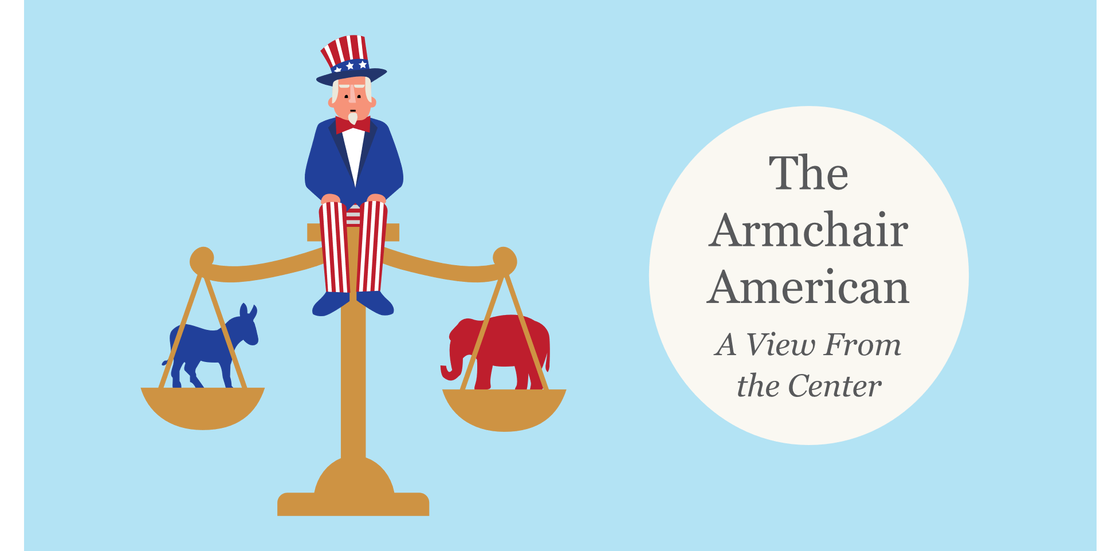


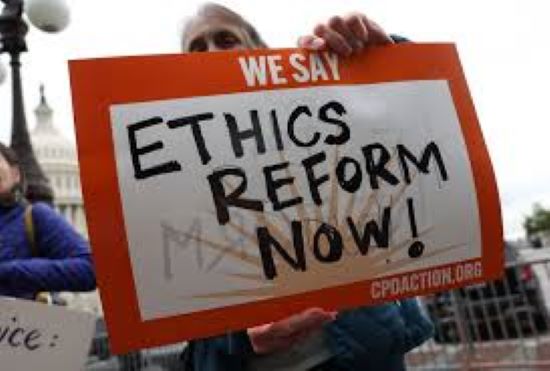


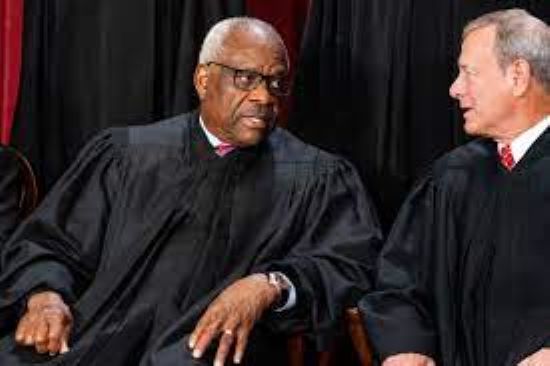

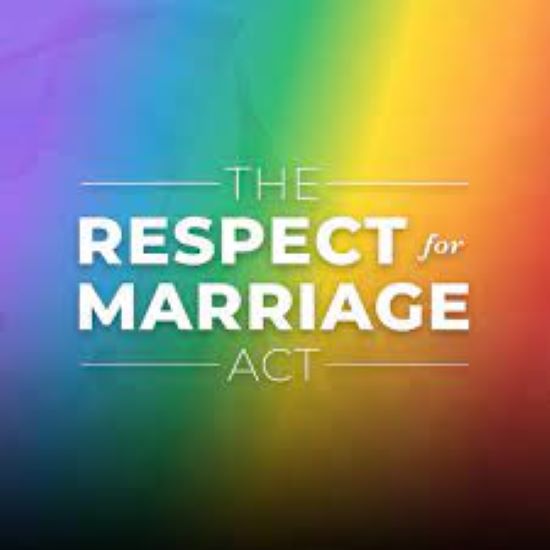
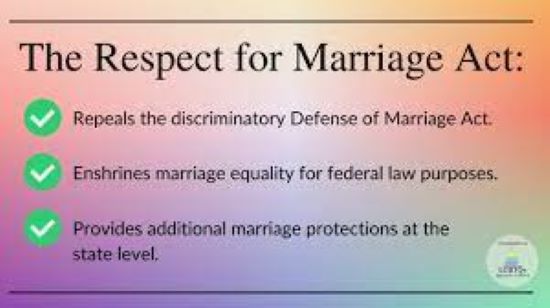

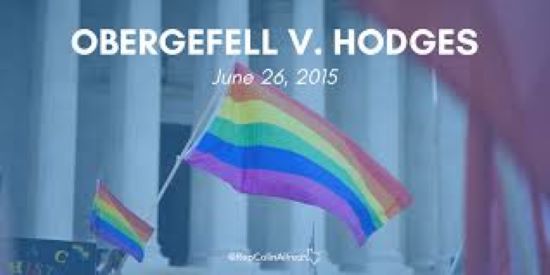


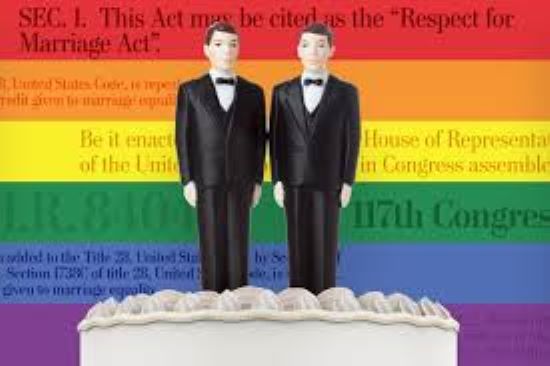

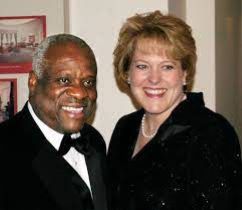

 RSS Feed
RSS Feed